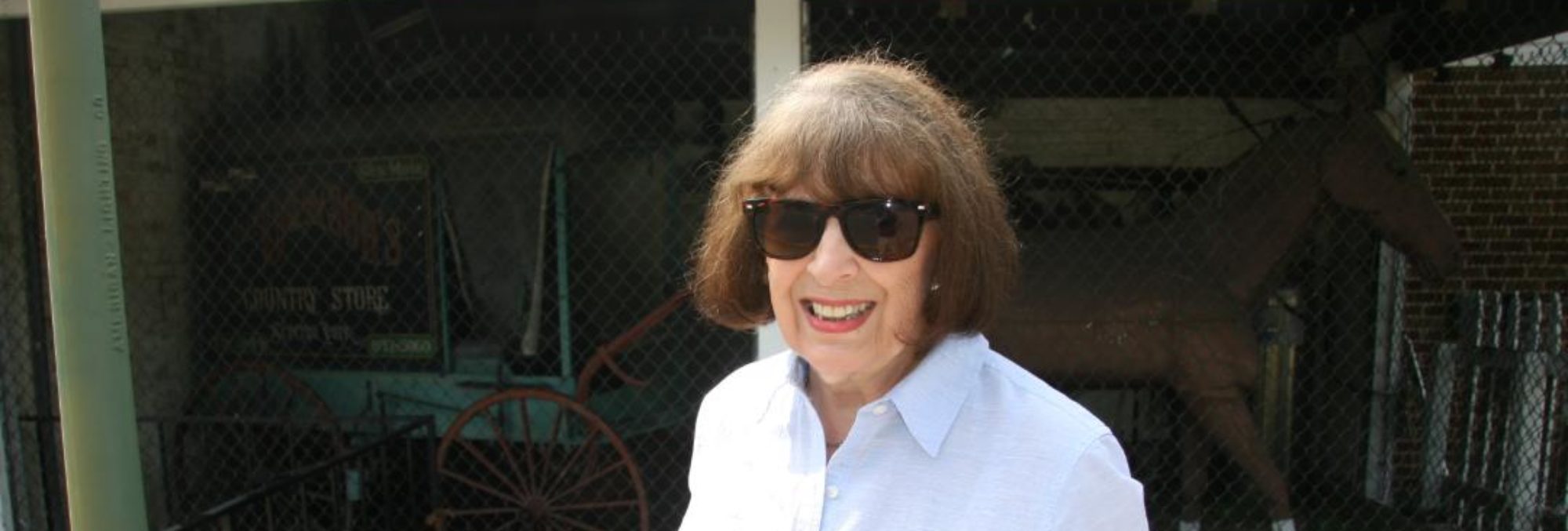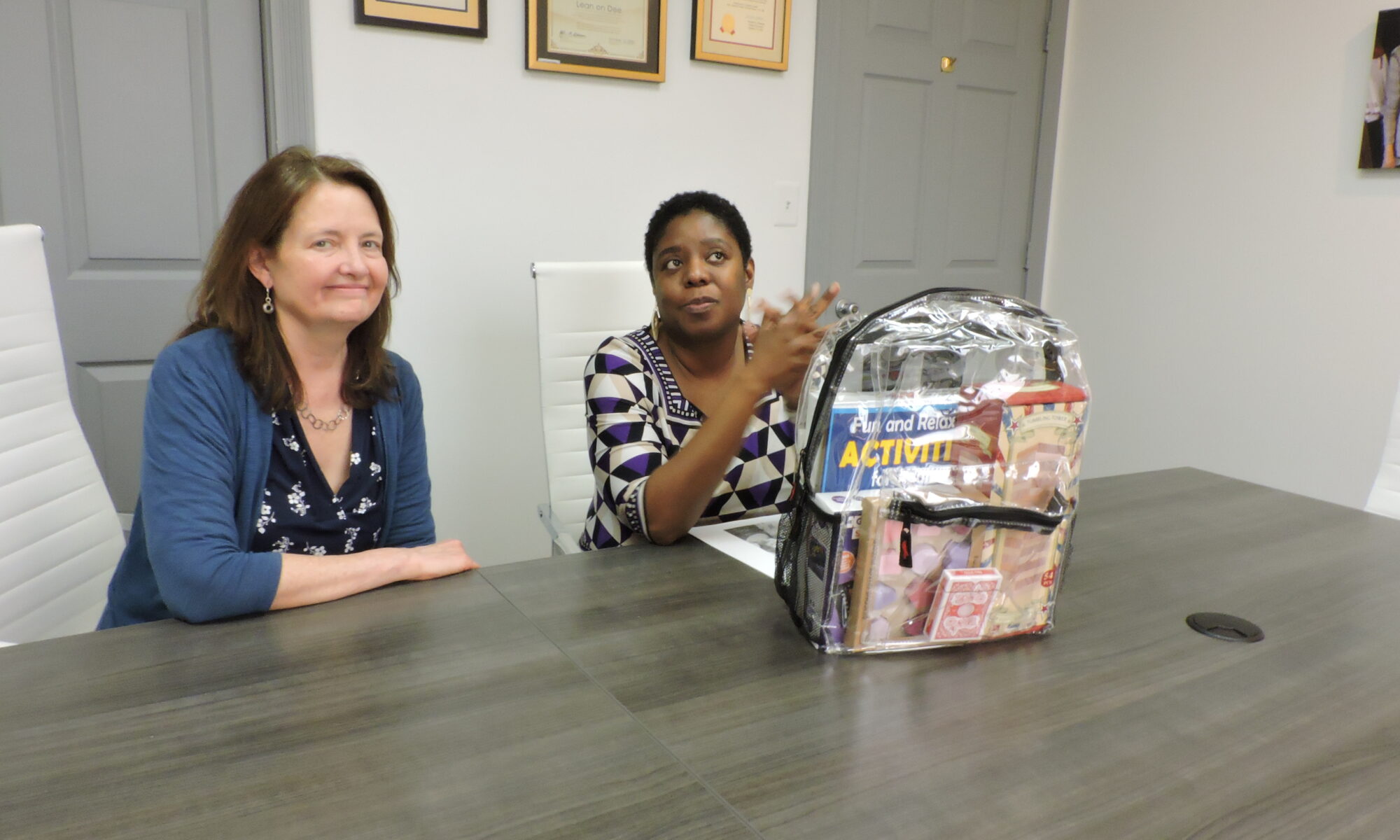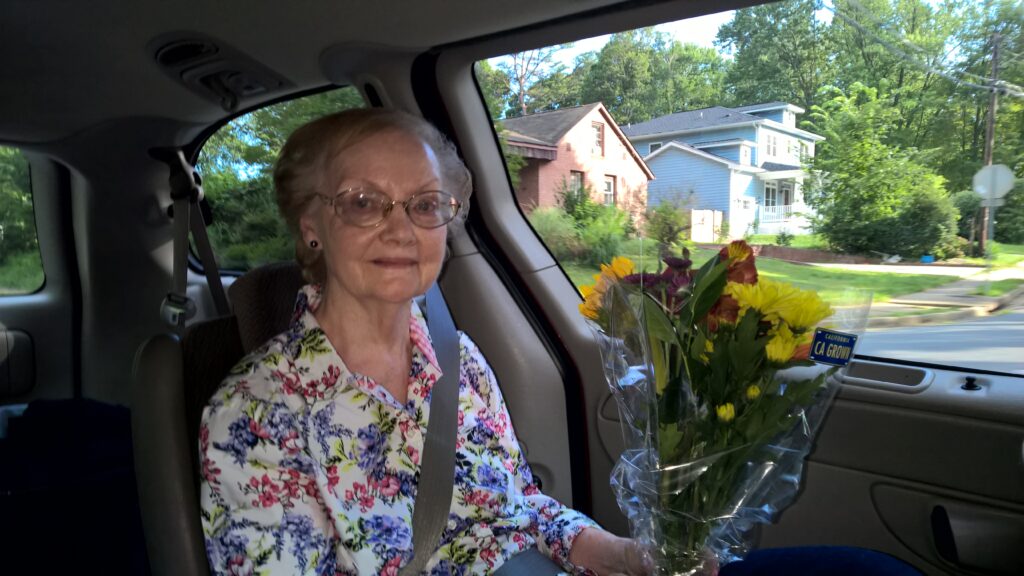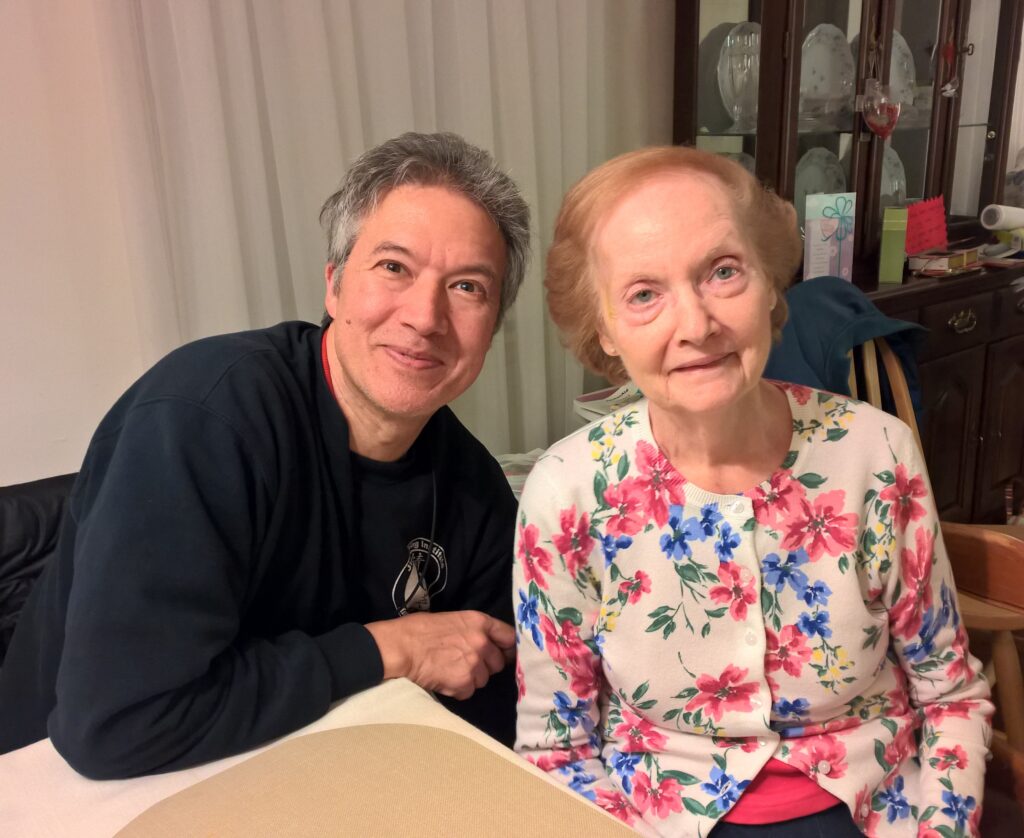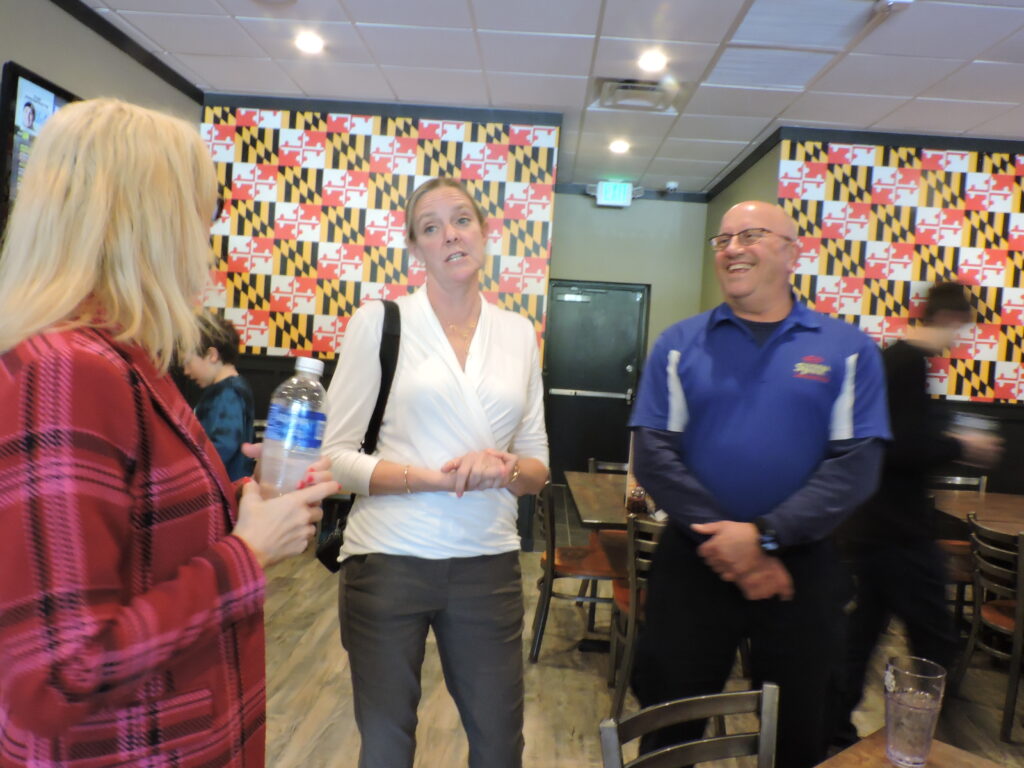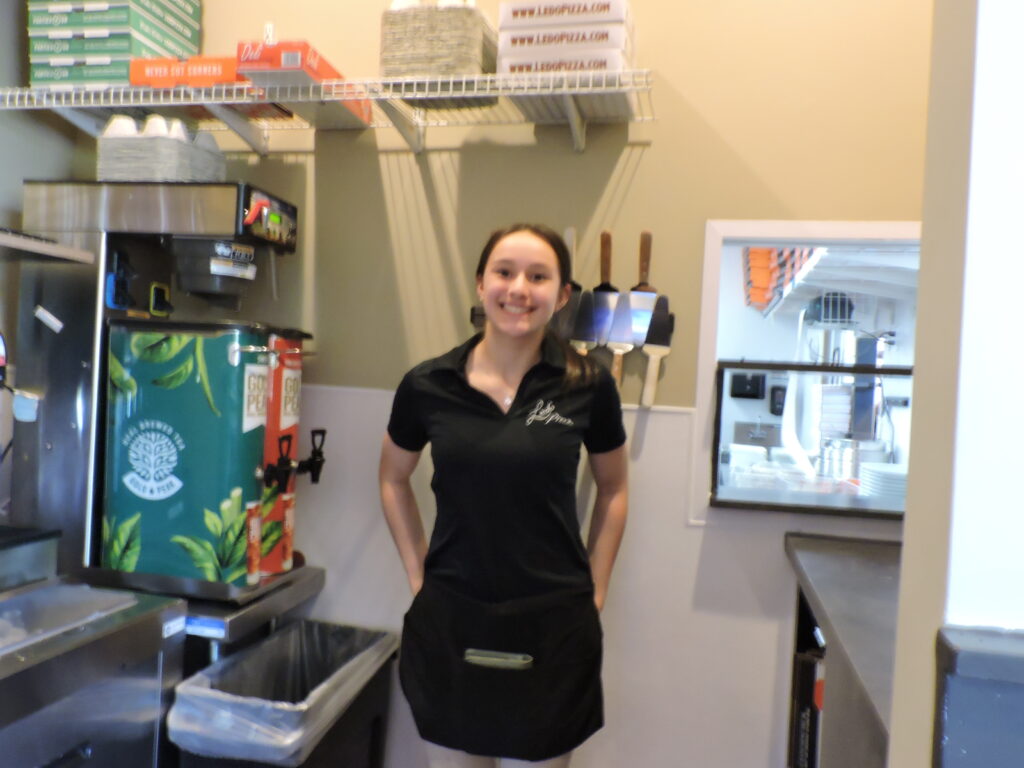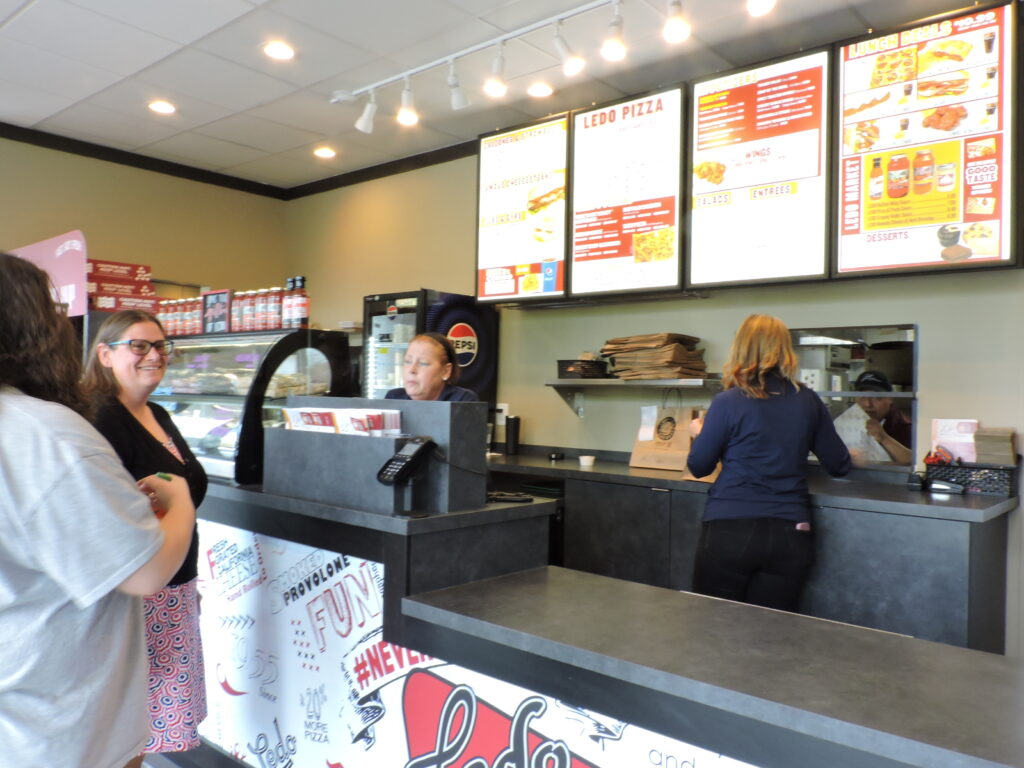AROUND THE PARK AGAIN by Sharon LeeTegler

Brought to you by Jing Ying Institute of Kung Fu & Tai Chi
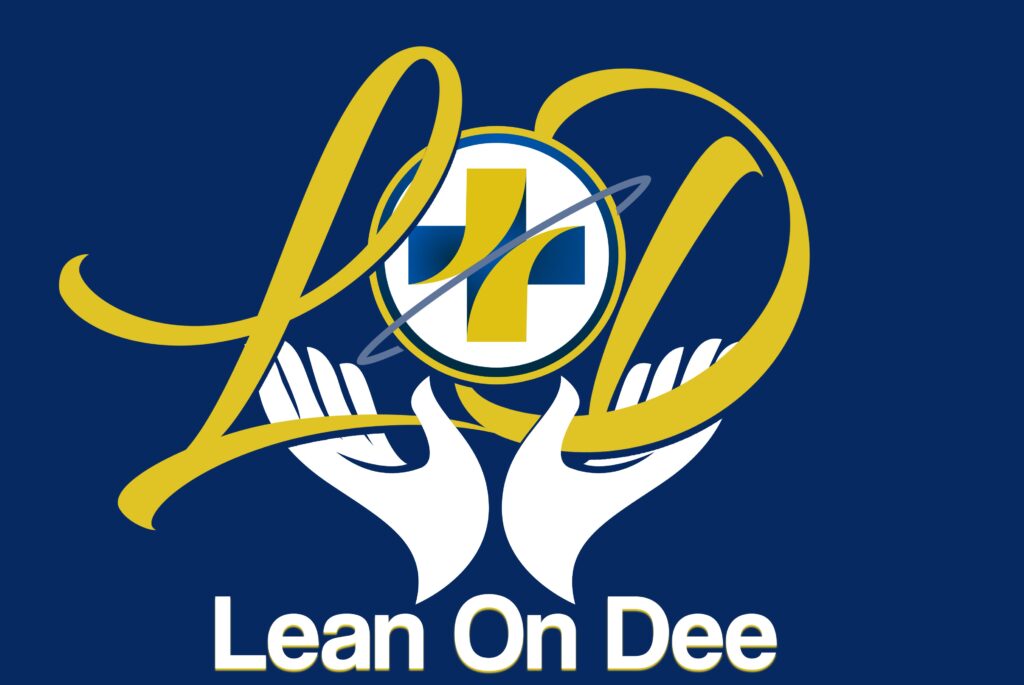
and Lean On Dee Senior Home Care Services
With our country’s aging population, it seems the number of individuals suffering from Alzheimer’s disease or dementia has increased significantly. According to the Alzheimer’s Association, more than 5 million Americans are living with dementia. Without changes in prevention, this number could reach 14 million by 2050.
It was astonishing to learn that more than 80% of care for dementia patients is provided at home by family members, friends or other unpaid caregivers. The challenges involved in doing so are monumental.
For perspective on what it’s like to provide the level of care needed for a dementia patient to continue living at home, we spoke with two women who have experienced it firsthand.
Business owner Nancy Greer and her husband Billy were deeply involved in caring for her mother Cora Willard, an Alzheimer’s patient.
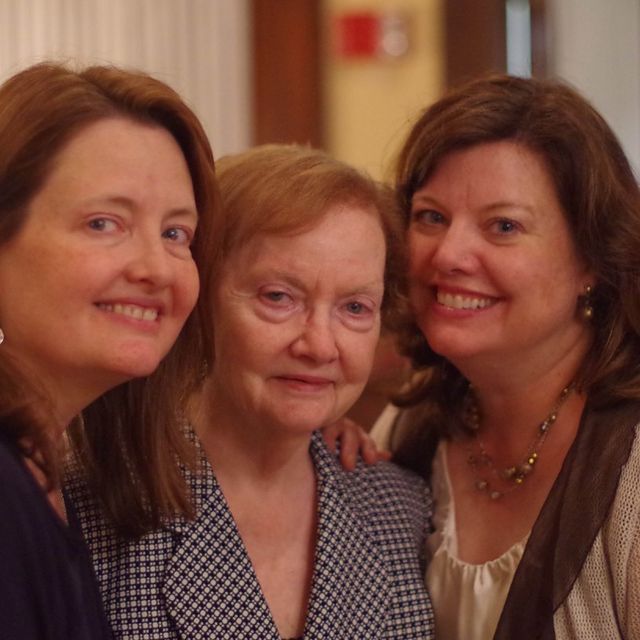
“My father Glenn Willard was deeply devoted to my mom and determined to care for her at home along with my sister Gail and Billy and me. “Since my parents lived in Virginia and my sister did too, Billy and I would drive down and spend every weekend helping care for my mom at what we came to refer to as “the cozy house”.
While still living in New York, Winsome Brown cared for her mother Elaine Clarke, also an Alzheimer’s patient, in her home while supported by her sister, a registered nurse, and other family members.
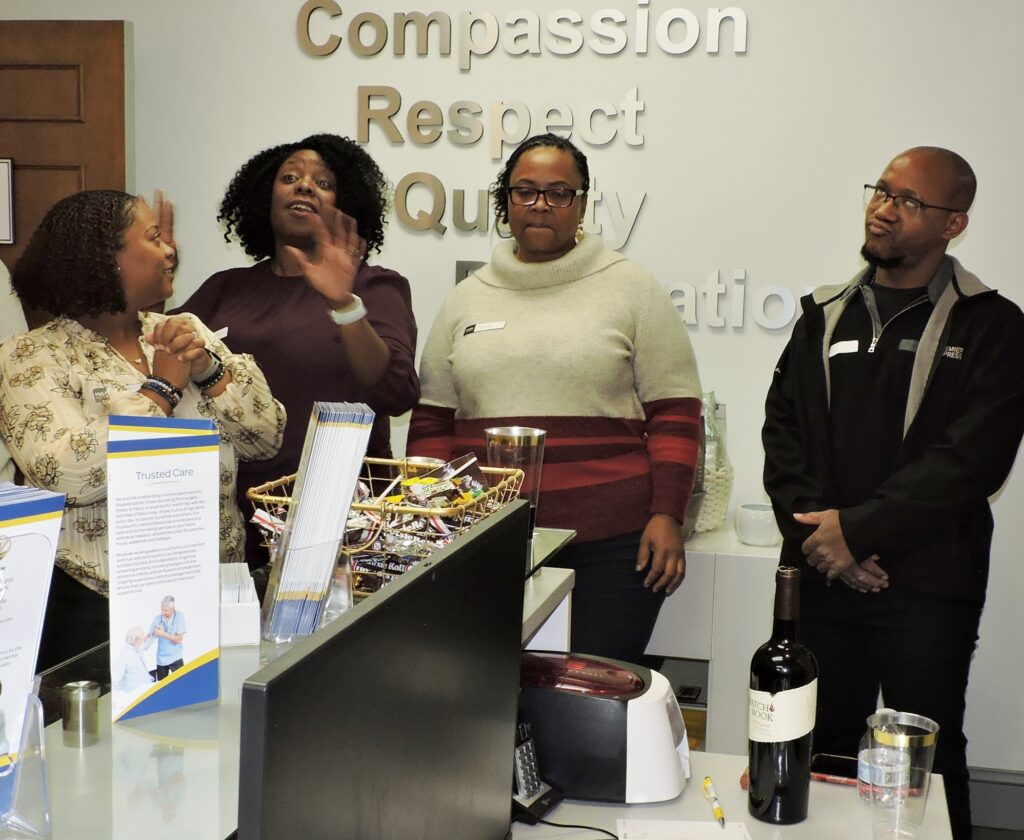
The experience – and lessons learned from it, inspired Brown to start her Severna Park business Lean On Dee Senior Home Care Services with sister Danielle Morgan Brown (Dee). They were soon joined by sister Ingrid McDonald and brother Tony Clarke. (Today Winsome is caring for her mother-in-law at home.)
A Community Educator for the Greater Maryland Alzhemier’s Association, Brown also participates in community activities where she shares the latest information about the disease.
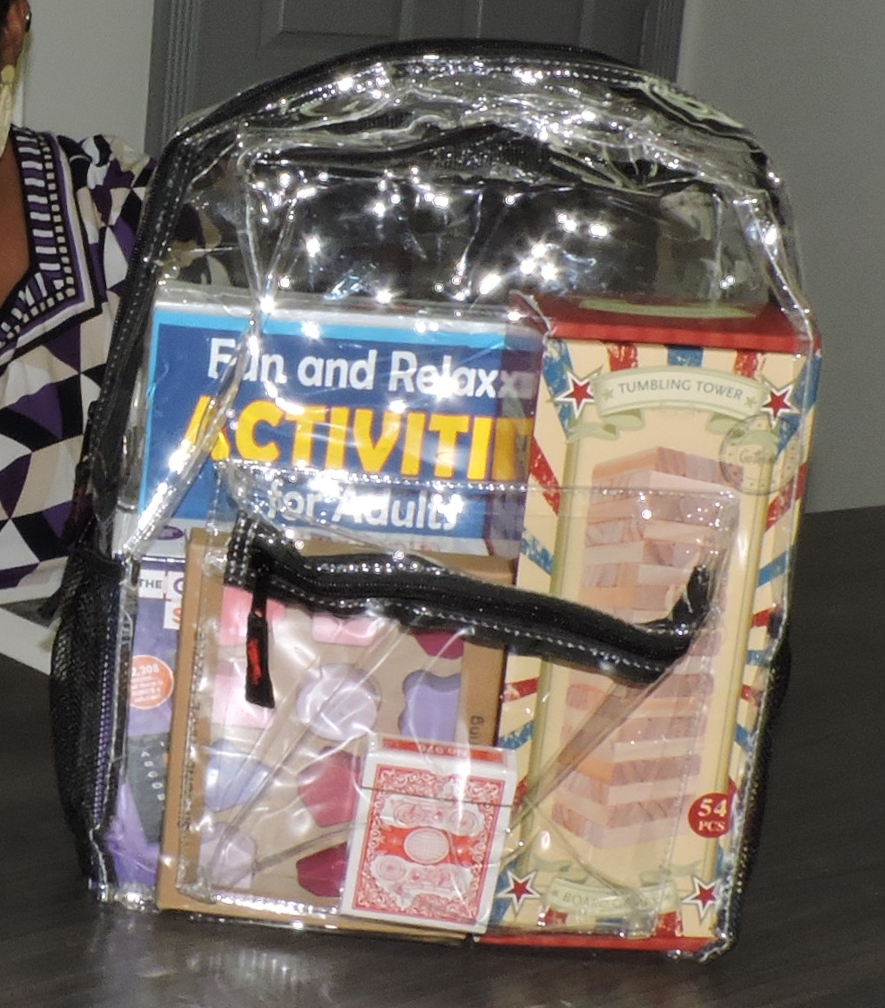
While Nancy Greer had never seen one of the transparent backpacks on the table that Brown designed for her caregivers to use with patients suffering from Alzheimer’s disease or dementia, she smiled knowingly. Some of the items Brown pulled from the backpack were similar to things she’d used caring for her own mother.
“The whole point of what I wanted to do is to hold on to these people’s souls even if they can’t recall everything you do with them,” she said. “They can’t remember that we played a game or did an activity ten times in a row but they are excited each time and it makes them happy.”
Serious for a moment in her role as an Alzheimer’s Association educator, Brown explained the differences between the disease and other forms of dementia.
Alzheimer’s is the most common cause of dementia, making up 60% to 80% of all cases. The main features of the progressive brain disorder are abnormal brain structures called plaques and tangles.
There are three other forms of dementia. They include vascular dementia resulting from a reduction in blood flow to the brain that is sometimes associated with a stroke. A second form, dementia with Lewy bodies is a type of progressive dementia cause by build-up of a protein called alpha-synuclein that damages brain cells. A third is frontotemporal dementia, a group of disorders related to progressive cell degeneration.
Greer pointed out that, like her mother, most Alzheimer’s patients are in denial when symptoms first appear and try to cover it up. It’s difficult to persuade them to seek a diagnosis. Making plans thereafter and finding help is extraordinarily challenging.
“If you wish to care for a patient at home, it’s hard to find good services to help,” she noted. “In the later stages of my mom’s illness, we were part of an innovative program associated with the hospital that sounded good on paper but the reality was different. Caregivers came to the house for one hour to fix breakfast and dress mom. Then a van would come get her and take her to a day program, then bring her home when a caregiver would come back for a second hour to help out. The problem was that there weren’t enough caregivers and some lacked experience.”
Brown explained why that program just doesn’t work.
“It’s hard to find someone who will come and work for an hour,” she said. “A normal paycheck is for forty hours a week. But you’re asking this person to come for an hour in the morning, care for someone, then leave and come back at night for an hour. That’s only two hours a day and doesn’t provide a livable wage.
Brown’s own agency keeps its profit margins slim in order to pay good quality caregivers (CNA MEDtech’s) at higher-than-average rates of $20 per hour. The company can’t afford to provide caregivers for just two hours. Instead, using four-hour shifts provides enough monetary compensation to make working as a caregiver worthwhile and ensures a higher level of care for the patient.
Brown and Greer outlined some of the experiences typical of patients and those who care for them.
“Caring for my mom was a bittersweet experience in some ways because, while Billy and I were going down to the house every weekend, we actually grew closer to my parents.”
The family found that routine was really good for Cora. She loved flowers so they always kept fresh flowers in the house or provides lovely bouquets. She loved music so Nancy made a tape for her of 200 familiar songs.

Gradually, she and Billy recognized that routine was actually good for both her parents and would regularly take them to Ledo Pizza and Trader Joe’s. At Ledo’s, the workers got to know us and would look out for mom and dad when they were out on their own. At Trader Joe’s, a young man from Africa and another from Pakistan admired that the couple took such good care of their parents which is more common in their countries of origin. Like the Ledo’s staff, they’d always look out for them.
But things didn’t always run smoothly.
“We could deal with Mom not knowing who we were. We just wanted her to feel loved and safe.” Greer said. “The hardest time was when she was scared. I’d sometimes be on the phone with her and she’d be saying ‘There’s a man in the house’. It was dad but she’d be terrified.”
Brown observed that there is so much more to dementia or Alzheimer’s disease than memory loss – especially the “fear factor” that her family is living with now. By now, her mother-in-law is afraid to be left alone in the house so someone must always remain behind. Simple things like eating, that everyone takes for granted, are a concern for the family because dementia patients don’t remember to eat. They forget how to cook or, sometimes, even use a fork. Not eating results in weight loss.
Eventually, dementia patients can no longer make decisions for themselves so their families must make hard-to-face decisions for them and the need for caregivers increases by the day. Barely a year after opening, Brown’s business has served more than 150 clients in their homes or for supplemental care at assisted living facilities. She notes that assisted living costs can run between $4,500 and $10,000 per month with private duty aides, if needed, an extra $30 per hour.
Both Brown and Greer are deeply worried that the country’s aging population, weakening economic situation and soaring healthcare costs are already a crisis. Basic medical care is beyond some individuals’ ability to afford, and long-term health insurance is also beyond their means. The women wonder aloud if any of the safety nets that currently exist will be available for them.
According to Brown, in spite of years spent searching for a cure for Alzheimer’s disease, none has been found. However, three types of drugs have been approved by the FDA to treat cognitive symptoms. To raise funds for continued research, Brown and her team have participated in the annual Alzheimer’s Association Walks several times raising modest amounts of money.
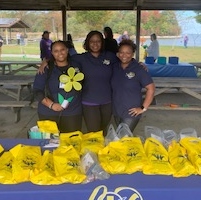
Nancy and Billy Greer and a team of their students from Jing Ying Institute have participated in Alzheimer’s Walks in Annapolis and at Sandy Point multiple years beginning in 2017. Having dedicated the first walk to the memory of Nancy’s mother Cora and last year’s walk to the memory of her father Glen, they have raised over $53,000.
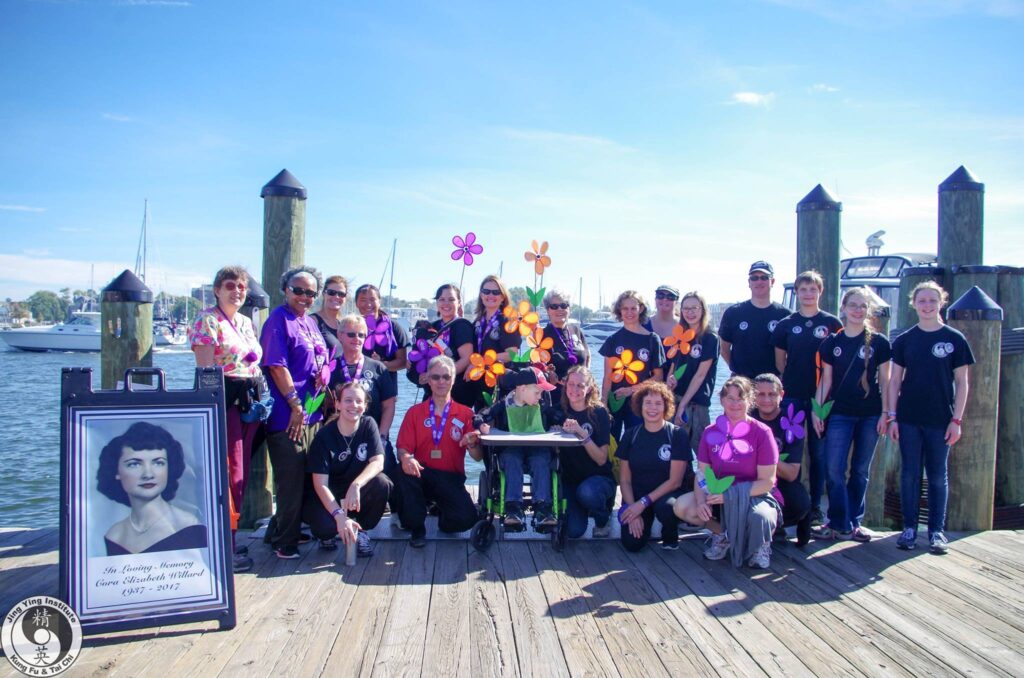
Nancy Greer and Winsome Brown gave us just a brief look at what it is like to care for a loved one suffering from dementia or Alzheimer’s disease at home. They urge those looking for information, seeking help, or wishing to make a donation to visit Alzheimer’s Association | Alzheimer’s Disease & Dementia Help.
Ledo Pizza’s opening celebration of new location followed by a ribbon cutting
It was great seeing the familiar faces of Ledo Pizza owner Martin Gorman, his staff and numerous friends from Severna Park’s business community during the restaurant’s official reopening celebration following their move to 342 Ritchie Highway.
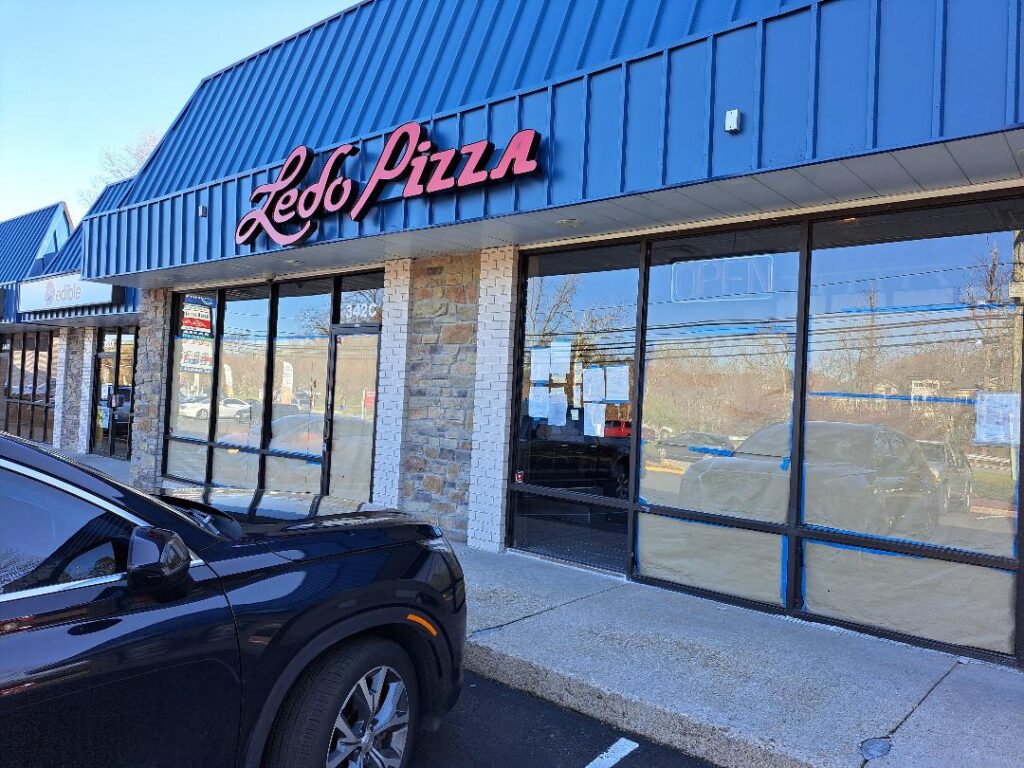
The renovations and remodeling of the former site known as Cakes & Confections complete, the sleek exterior gave way to an equally sleek and colorful interior.
Just inside the entrance we ran into Maryland State Delegate Heather Bagnall talking with Larry Sells of Larry Sells Consulting and Greater Severna Park & Arnold Chamber CEO Liz League who introduced us to Louben Repke, the owner of Dodge Arrows in Millersville. Shortly thereafter, we encountered Repke showing one of his soft-tipped arrows to Macaroni Kid Pasadena editor Laura McElwain Colquhoun and her son Quinten.
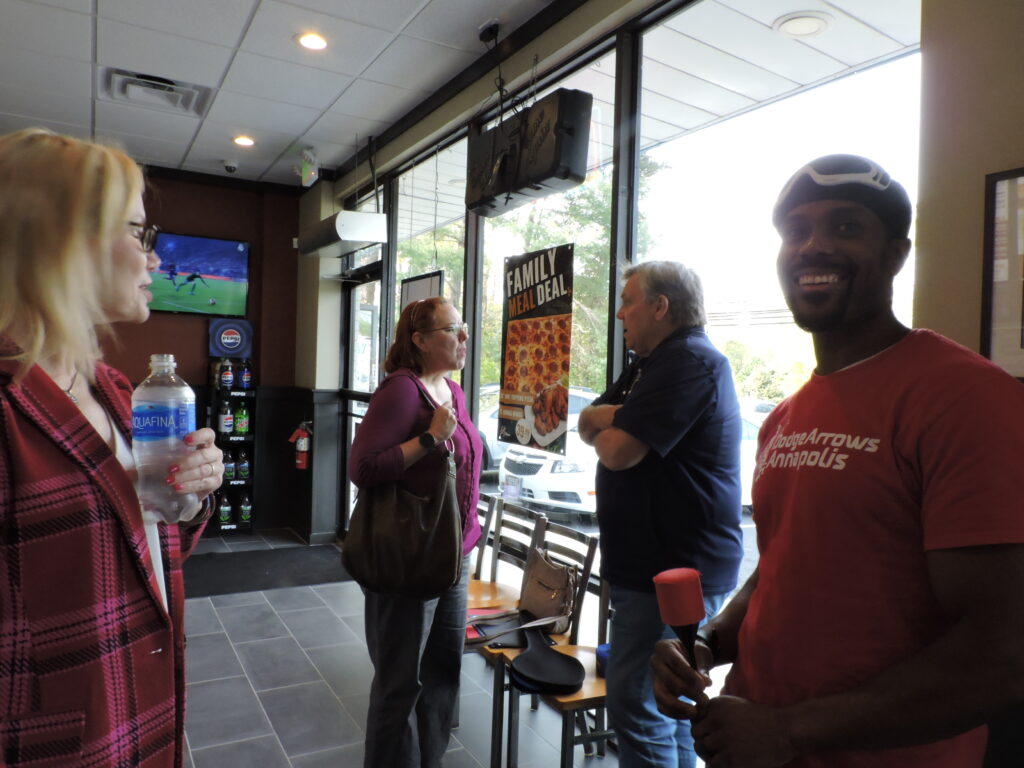
Liz League introduced us to Louben Repke of Dodge Arrows. 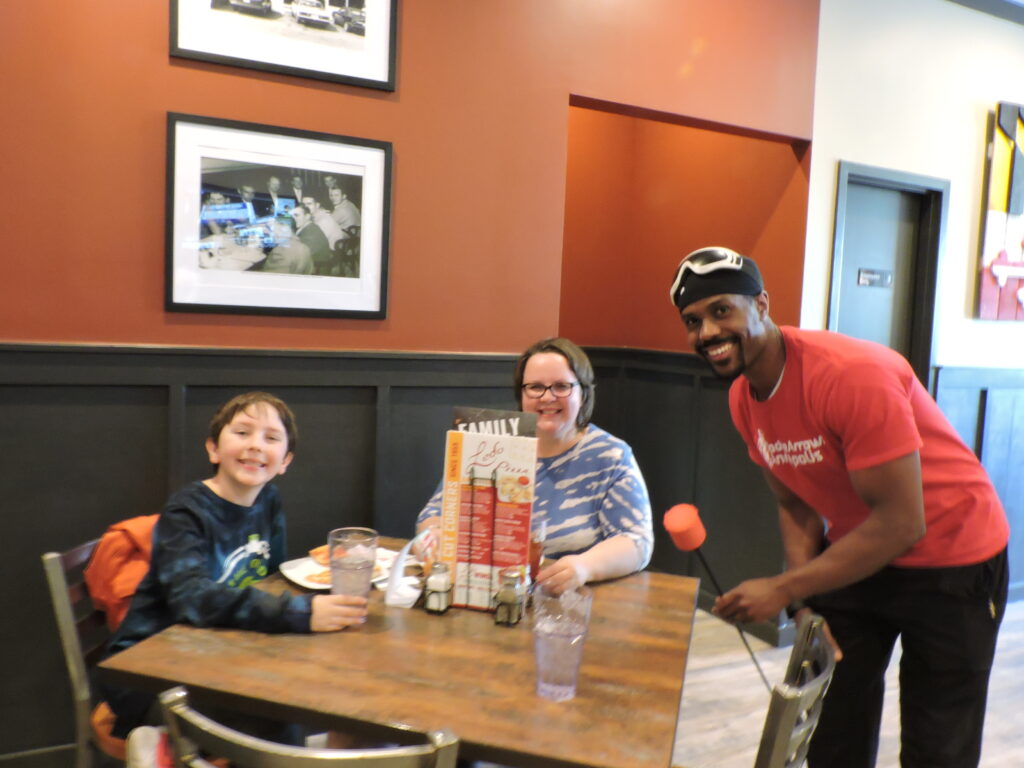
Laura McElwain Colquhoun’s son Quinten loved meeting Dodge Arrows’ Louben Repke.
The atmosphere was lighthearted and quite noisy. We didn’t know everyone, but we spotted BD Provisions owner Debra Saltz and, later, bumped into Severna Park Voice editor Dianna Lancione and Severna Park Automotive owner Mike McNealey. It was great to see familiar Ledo staff members like waitress Katherine Ramiras as well. Ramiras said she is enjoying seeing the customers she served at the former Park Plaza location coming in.
As guests nibbled pizza and other treats from a sumptuous spread behind them, League conducted what she referred to as a “fireside chat” with Gorman in front of a colorful wall patterned after the Maryland State Flag. She began by thanking him for opening the restaurant that was a staple at Park Plaza since 1998 and congratulated him on opening the “bright and beautiful” Ledo Pizza. League noted how many social media posts she’d seen when the move to the new location was announced from people who’d had their first job a Ledo’s or their first date there. She then asked him to talk about the history of the establishment.
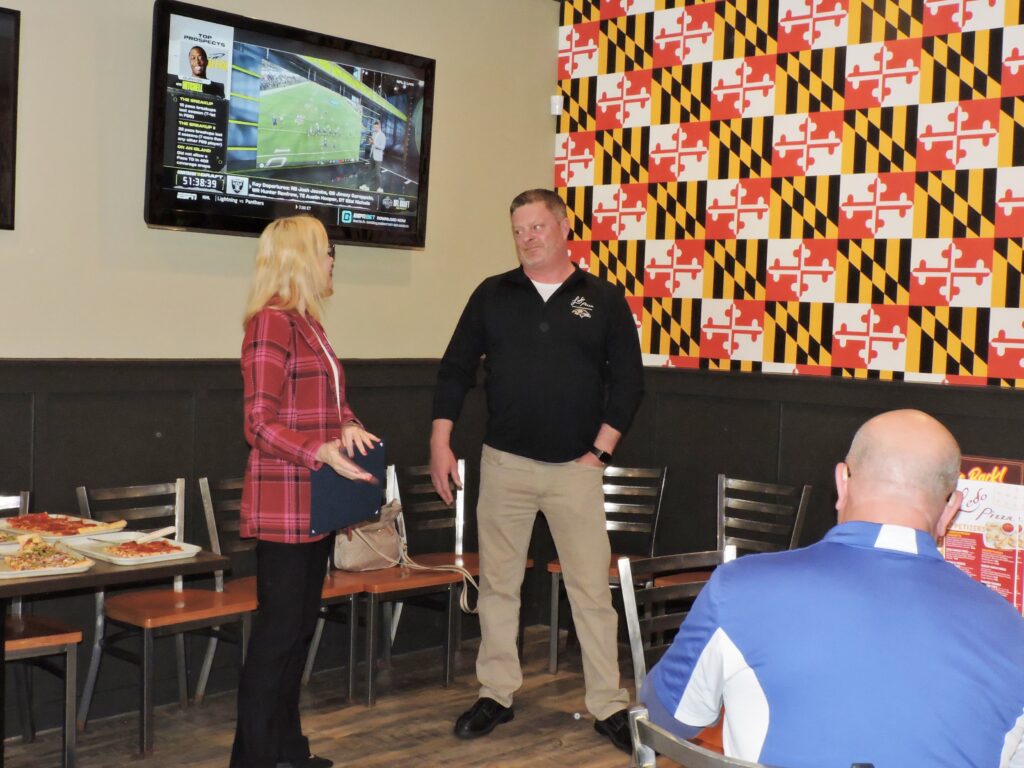
“Years ago I’d been in the information technology business but wanted to start a business of my own and looked into everything from car washes to hardware,” Gorman said. “I’d grown up with the Bells whose grandfather started the first Ledo’s pizza parlor in College Park in 1965. They’d heard I was interested in establishing a business and contacted me because they’d been opening more franchises including one in Severna Park. So, we opened at Park Plaza in 1998 and later expanded the restaurant to the building next to us adding 60 seats. I’ve been building on that original success ever since. We now have Ledo Pizza locations in Millersville and on Kent Island and we’re partners in the one at BWI.”
Among other things, Gorman noted that he had kept his entire staff from the Park Plaza location and paid their salaries for the three weeks they closed down to remodel and make the move.
League highlighted the fact that Ledo Pizza has been incredibly active in the community supporting numerous charities and events, a practice the owner plans to continue.
Following the fireside chat, a number of awards were presented to Gorman. Afterward, guests were invited outside by League for an official ribbon cutting. We wish Ledo Pizza Severna Park another 26 years of success.
The Around The Park Again column is brought to you this week by Jing Ying Institute of Kung Fu and Tai Chi at 1195 Baltimore Annapolis Blvd. – For over two decades providing martial arts training that improves cardio-vascular health, strength and flexibility while reducing stress. Jing Ying is again bringing Tai Chi to the Severna Park Community Center.)

and by Lean On Dee Senior Home Care Services at 815 Ritchie Hwy., Suite 206 – When you need someone to lean on, Lean On Dee. Their experienced team of personal care management specialists and friendly companions provide high quality consistent care.

